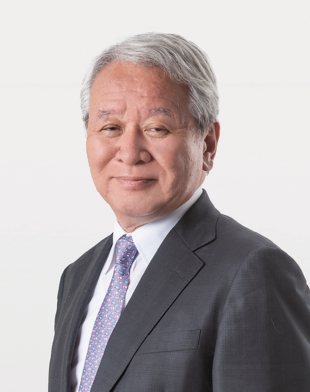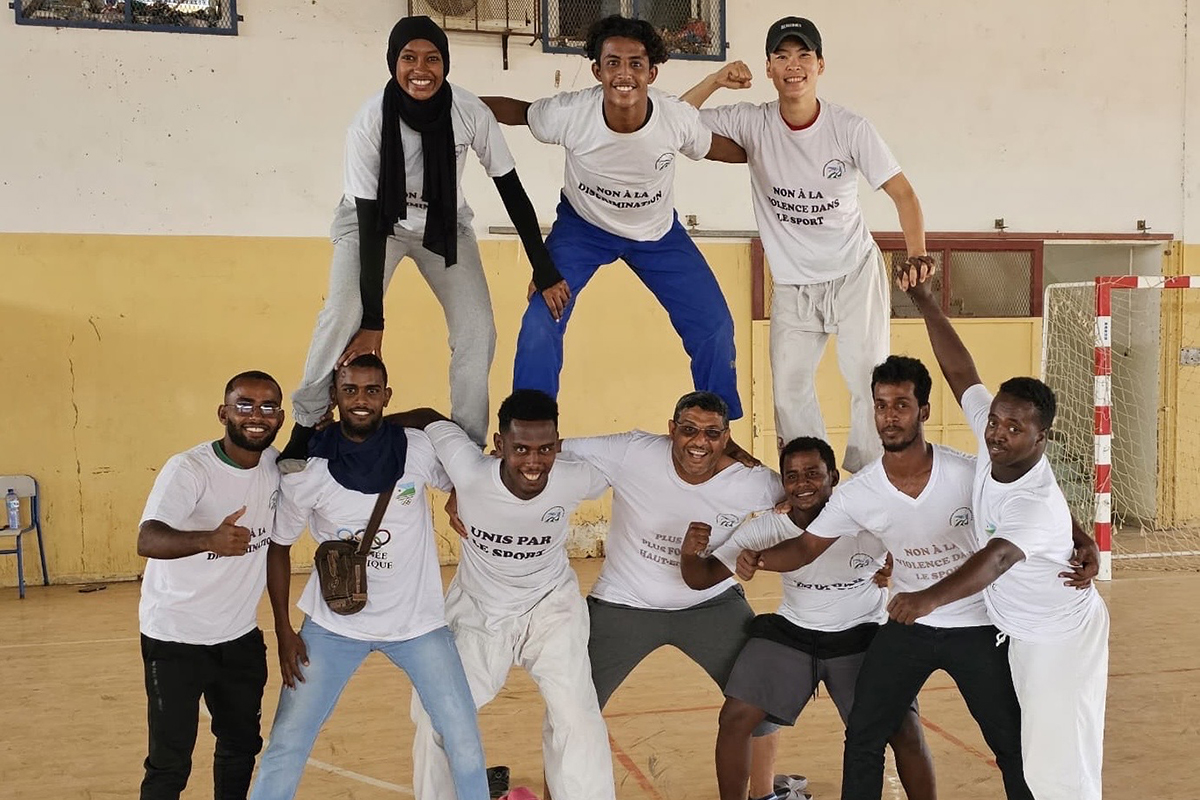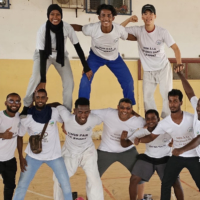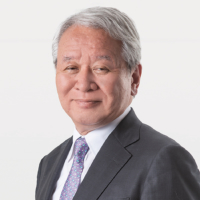As the ninth Tokyo International Conference on African Development convenes in Yokohama, the spotlight returns to Africa — a continent of extraordinary diversity and opportunity.

This year’s conference carries heightened significance. As global challenges deepen — from geopolitical fragmentation to climate change and economic inequality — TICAD 9 provides an essential venue to reimagine developmental cooperation rooted in mutual respect, innovation and strategic partnership.
Central to this potential is Africa’s youth — an energetic, connected generation that can shape not just the continent’s future, but the world’s. Africa could become a future manufacturing center, a trendsetter and a market for many businesses, as one in four people globally will be African by 2050. This demographic shift, if harnessed, can deliver what economists call a “demographic dividend,” an economic windfall driven by a young, productive workforce. However, without proper investment in education, health care and job creation, it could equally deepen poverty and unrest.
Homegrown innovation
At the heart of the Japan International Cooperation Agency’s development strategy lies the belief in “homegrown growth” — an approach that nurtures Africa’s own initiatives and capabilities to create local solutions and innovation.
Over the years, JICA has supported transformative initiatives such as the Coalition for African Rice Development program (CARD), the Smallholder Horticulture Empowerment and Promotion program (SHEP) and Kaizen, a productivity improvement methodology adapted from Japanese business practices. These initiatives have empowered farmers and improved the productivity of African businesses and entrepreneurs by building resilience and competitiveness.
CARD was launched in 2008 at TICAD IV. It has doubled Africa’s rice production from 14 million tons in a decade. Building on this, JICA and its partners have expanded CARD to 32 countries, targeting a further doubling to 56 million tons by 2030. This initiative significantly advanced Africa’s transformation from food dependency to self-sufficiency, which JICA remains fully committed to supporting.
SHEP and Kaizen, now thriving in 20 to 30 African countries, help unlock human potential with few additional resources. SHEP shifts small farmer’s mindsets toward strategic production, boosting their incomes. Similarly, Kaizen empowers workers to improve their ability to complete daily tasks, enhancing productivity. African trainers can now spread these approaches throughout the continent, fostering sustainable, self-driven development.
Furthermore, Africa’s youth are increasingly entrepreneurial, leveraging digital technologies to solve problems and launch startups. Some students who studied in Japan have returned home to build businesses, creating new bilateral collaboration opportunities.
To support this wave of innovation, JICA launched the Next Innovation with Japan project, dubbed “Project Ninja,” in 2020, connecting African startups with Japanese investors and expertise. This year, JICA concluded a grant aid agreement with Nigeria to support local startups — the first of its kind in Africa.
At TICAD 9, JICA will introduce the Impact Investment for Development of Emerging Africa Initiative, offering financial backing to private funds targeting socioeconomic development and climate action. Complementing this, the Japanese government amended the JICA Act in April 2025, empowering JICA to take financial risks and mobilize private investment for African development.
Youth key to future
The Africa-Japan partnership is increasingly defined by the energy and talent of its youth. One of the flagship initiatives is the African Business Education (ABE) Initiative for Youth, which has enabled over 1,900 African students to study in Japan and intern at Japanese companies since 2013.
Among its many success stories is Pelonomi Moiloa from South Africa, who earned her master’s degree from Tohoku University. She founded Lealap AI, developing artificial intelligence solutions for the 25 million under-resourced speakers of languages such as Zulu, Sotho and Afrikaans. She made the TIME 100 AI list in 2023, showcasing the immense potential within Africa to lead its own digital transformation.
Building on this progress, JICA is preparing to launch a new initiative — Tomoni Africa — at TICAD 9. This Japanese word has a dual meaning: “together” and “be friends.” Tomoni Africa will expand face-to-face exchanges between African and Japanese youth. The aim is not just to share knowledge but to build enduring friendships and collaborative ventures.
Such exchanges are already underway. In May, JICA and Sapporo Kaisei High School co-hosted the Japan-Africa Youth Camp, where 300 Japanese high school students met with 20 of their African peers. They engaged in dialogue about culture, development and future partnerships, illustrating how youth-to-youth interaction can break down barriers and spark mutual understanding.
Equally important is the legacy of the Japanese Overseas Cooperation Volunteers program. Since 1965, over 16,000 Japanese volunteers have been sent to Africa, deepening bonds and contributing across sectors from education to agriculture to sports. Aya Tsuboi, after her service in Uganda as a JOCV, launched Sunda Technology with an innovative prepaid, pay-as-you-go internet of things solution for hand-pumped wells. By integrating mobile money, water meters and ID tags, Sunda revitalizes abandoned wells, ensuring transparent, usage-based payments for sustainable water access. Tsuboi was highlighted in Forbes Japan’s Next 100 list in 2023 for empowering communities and driving sustainable development in Africa.
Boosting multilateralism
Since its inception, TICAD has stood for its multilateral, inclusive approach, bringing together diverse actors. This open format reflects the principle of “Ownership and Partnership” first articulated at TICAD II in 1998 and is still central today.
To increase intraregional trade integration and deepen connectivity across the continent, JICA signed a memorandum of cooperation with the African Continental Free Trade Area secretariat in 2022, to create a single, large free-trade zone across the continent.
Besides this, JICA has leveraged Japanese and other Asian know-how in promoting “corridor development” in Africa, connecting cities to boost economic activity. It has led One Stop Border Posts and trained customs officers in how to streamline trade. This concept spread in conjunction with the ambitious Program for Infrastructure Development in Africa via the African Union Development Agency-NewPartnership for Africa’s Development, our peer in Africa. Fostering greater connectivity and international cooperation would lead to greater prosperity in the continent.
JICA has been a conduit connecting Africa to Asia and Latin America. Since 1985, JICA has engaged in triangular cooperation with Egypt to train other African officials, a partnership recently accelerated in 2019 at TICAD 7 by the signing of a memorandum of cooperation.
Around the same period in the 1980s, similar cooperation began with Brazil for Africa, sending experts to Mozambique. This model also applies to Southeast Asia. Last year, JICA and Indonesia signed a memorandum to jointly support African development. At TICAD 9, JICA will welcome representatives from Africa, Asia and Latin America to explore South-South collaboration opportunities.
Toward a shared future
Africa today stands at a crossroads. Its challenges — poverty, conflict and governance — are formidable. But its opportunities — youth, innovation and democratic resilience — are equally compelling. For Japan, engaging with Africa is not charity, but a strategic investment in the world’s shared future.
The concept of human security — championed by Japan — remains central. Beyond direct threats to livelihood, life and dignity, we now face complex challenges such as pandemics and climate change. JICA is operationalizing this concept in our cooperation to make it more responsive to these threats in Africa. As Africa 2063 includes a human security component in its development goals, I look forward to deepening discussions with African leaders at TICAD 9.
Human exchange lies at the heart of this partnership. Japan’s overseas cooperation volunteers continue to earn respect across African communities, and many returning volunteers are revitalizing Japanese regions. Programs like the ABE Initiative and Tomoni Africa will be key to fostering a new generation of African and Japanese leaders who understand, trust and collaborate with each other.
As the global order faces increasing strain, Africa and Japan together can offer a model of co-creation — grounded in respect, powered by youth and guided by shared values. The future is in their hands.





